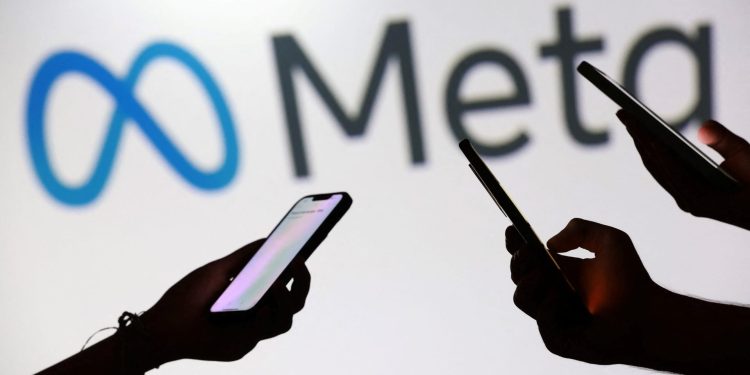The hold of Meta Platforms on digital advertising is only strengthening. Meta is making a change to its recommendation engine. Starting December 16, conversations users have with the company’s generative artificial intelligence tools, such as chatbots from Facebook, Instagram, WhatsApp and Messenger, as well as the standalone Meta AI app and website, will be used to make ads and content more personal. Although users cannot opt out, Meta said “the update will not apply” to those who do not interact with AI on its platforms. The company also said conversations about AI involving health, politics and religion would be excluded. Gil Luria, technical analyst at DA Davidson, called the update “the next step for Meta as it continues to be the biggest market share gainer in the advertising industry” since 2007 when the company established its comprehensive advertising platform. By integrating insights from Meta AI – which answers questions and generates text and images, into its recommendation systems – the company aims to better understand what interests the more than 1 billion people who use the chatbot each month, beyond their likes, follows, posts and replies. The social media giant hopes this deeper use of AI will supercharge its powerful advertising engine that already makes the company one of the most dominant forces in digital advertising. Data from eMarketer, which tracks the online advertising industry, puts Meta in second place, estimating that it will capture nearly 21% of U.S. digital ad spending in 2026. Alphabet’s Google was first with almost 24%, with Amazon considered the steadily rising No. 3 with more than 17%. “The ability now to add what they (Meta) learn about their consumers through chat will make their ads even better,” Luria told CNBC. “We ask a lot of things from a chatbot that go beyond the social media feed.” He added: “This gives Meta incredibly valuable insights to refine and feed the flywheel to deliver better, more relevant content, and then deliver better, more relevant ads.” Luria said Meta’s expansion of data collection plays directly to the company’s strengths: keeping consumers engaged and serving the most relevant ads. “The more Meta knows about its consumers, the more targeted the ads are. If the ads are very well targeted, then the return the advertiser gets continues to increase,” according to Luria, who has a Buy rating on the stock, with a price target of $825, implying a 15% upside through Wednesday’s close. Meta’s intense artificial intelligence push — which CEO Mark Zuckerberg aimed to accelerate with an AI hiring blitz this summer — has long fueled the company’s advertising dominance. Even before last week’s update, Meta used AI to decide what content users see and which ads to serve based on their interests and behavior. Meta also uses AI to help businesses create and target their ads. Luria explained that by integrating AI deeper into its core platforms, Meta is proving how its multibillion-dollar investment in AI development can increase the accuracy and profitability of its advertising business, which also funds its efforts in virtual reality glasses and smart glasses. These initiatives are housed in the money-losing Reality Labs portion of Meta. “Meta isn’t just investing in AI infrastructure just to serve better ads,” Luria said. “They want to have the best model,” referring to competing AI models such as OpenAI’s ChatGPT, Google’s Gemini and Perplexity’s Claude. “But in the meantime, to pay for this, they will sell more advertisements, which helps finance the infrastructure,” he added. To be sure, investors have expressed concerns about the high cost of Meta’s AI development — including spending on data centers and custom chips — and whether those investments will generate a sufficient return on investment. The debate comes as some investors worry about a potential bubble forming around AI trading, raising questions about how much growth is already baked into AI-focused stocks. Since posting a record close of $790 on Aug. 12, the stock has cooled off. The shares are currently trading at about $716 each, up 22% year to date compared to the S&P 500’s 14.5% advance in 2025. META YTD mountain Meta Platforms YTD In his most recent Sunday column, Jim Cramer wrote: “We are living in the Fourth Industrial Revolution. It is based on artificial intelligence that will divide entire verticals. For Meta, that means using its massive cash flow and AI expertise to maintain its leadership in digital advertising. Club continues to maintain our $825 price target on Meta stock and Rating 2, meaning we would wait for a pullback before buying. (Jim Cramer’s Charitable Trust is long META, AMZN, MSFT. See here for a complete list of stocks.) As a subscriber to CNBC Investing Club with Jim Cramer, you will receive a trade alert before Jim places a trade. Jim waits 45 minutes after a trade alert is sent before buying or selling a stock in his charity’s portfolio. If Jim talked about a stock on CNBC TV, he waits 72 hours after the trade alert is issued before executing the trade. THE ABOVE INVESTMENT CLUB INFORMATION IS SUBJECT TO OUR TERMS AND CONDITIONS AND PRIVACY POLICY, AS WELL AS OUR DISCLAIMER. NO OBLIGATION OR FIDUCIARY OBLIGATION EXISTS, OR IS CREATED, BY VIRTUE OF YOUR RECEIPT OF ANY INFORMATION PROVIDED IN CONNECTION WITH THE INVESTMENT CLUB. NO SPECIFIC RESULTS OR PROFITS ARE GUARANTEED.









